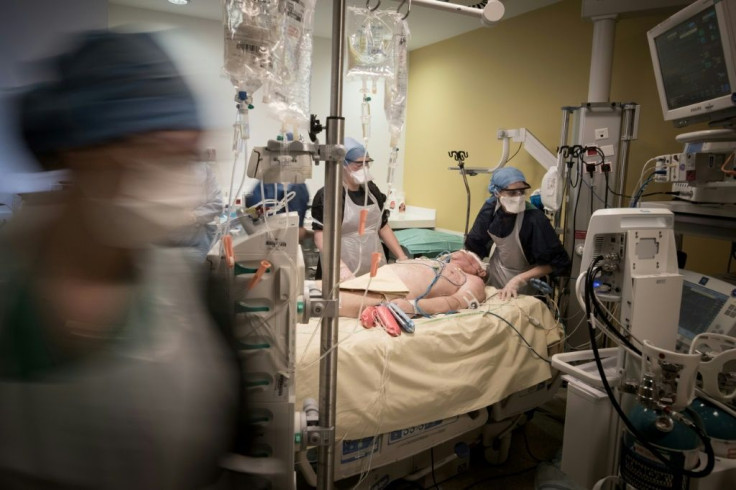COVID-19 Patient On Ventilator Endures Painful, 4-hour Erection
KEY POINTS
- Blood clots caused the erection.
- Doctors want more proof that priapism is a symptom of the infection
- The man spent 14 days on the ventilator, but eventually recovered
A 62-year-old man with COVID-19 suffered a four-hour erection that his doctors suspect is another symptom of the deadly infection.
The man was seriously ill, on a ventilator in the intensive care unit of Centre Hospitalier de Versailles in France, when he developed priapism, a persistent and painful erection caused by blood getting trapped in the penis, according to a case study published in the American Journal of Emergency Medicine .
Doctors initially applied an ice pack to ease the condition, but eventually drained the blood, discovering blood clots, the doctors wrote.
The man didn't experience any recurrences and survived, although he spent 14 days on the ventilator.
Blood clots have been reported in COVID-19 patients, but the man had what his doctors claim is the first known case of priapism in a COVID-19 patient. Aside from troubled breathing, the increased tendency to form blood clots is considered one of the potentially deadly complications of the coronavirus.
"The clinical and laboratory presentation in our patient strongly suggests priapism related to SARS-CoV-2 infection," the authors wrote in the case study. "This medical emergency should be recognized by healthcare professionals and treated promptly to prevent immediate and chronic functional complications."
Priapism can lead to permanent erectile dysfunction if not treated immediately.
The authors noted more cases of priapism must be reported to strengthen the connection with COVID-19.
"Although the arguments supporting a causal link between COVID-19 and priapism, as well as the ischemic mechanism for priapism, are very strong in our case, reports of further cases would strengthen the evidence," the authors wrote.

© Copyright IBTimes 2024. All rights reserved.












